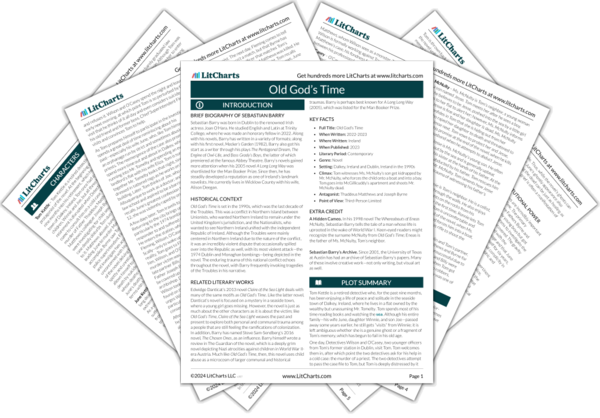The advice that Tom gives Ms. McNulty once again underscores the fact that the police are largely useless to her. As she points out, the letter of the law means that the police aren’t able to protect her so much as deal with the consequences
after something bad happens to her. In contrast, Tom, as a retired detective, is no longer associated with the force and has more power to be proactive in protecting her. This suggests that, in one sense, leaving the force has freed him to act more ethically.
